Dogwood Quilting tutorial
This post is part of a series a Beginner’s Quilt-Along. Please see this page for links to all posts.
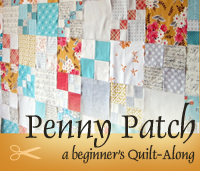
Learning to Dogwood Quilt earlier this year was my breakthrough free motion quilting (FMQ) moment. I had done some FMQ before - simple loops only, I think - but conquering this particular pattern gave me the courage to start experimenting with my own ideas. My hope is that others new to FMQ will also find their way!
I learned this quilting style on Elizabeth Hartmans blog. Visit Oh Fransson! for her tutorial. Here I'll be sharing some additional tips that should help!
Prep the Quilt
Before you start quilting, you need to create a 3" square grid on your quilt. If you're quilting a Penny Patch, your 6" finished blocks will need 2 segmenting lines. I used a hera marker and my longest ruler to divide the blocks into 3" squares.
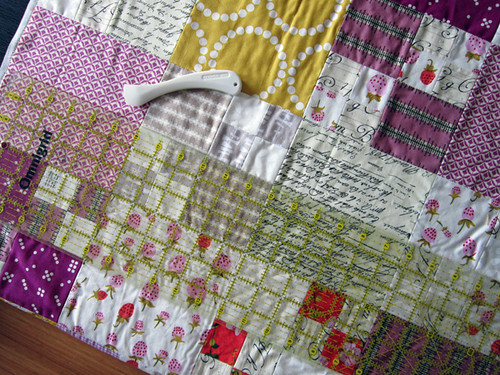
Of course, the 4-penny patch blocks are already divided, making it easy to know where to mark!
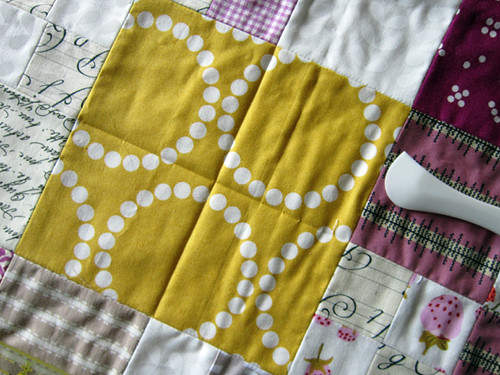
Next use a water soluble pencil or marker to place a dot at the center of each 3" square.
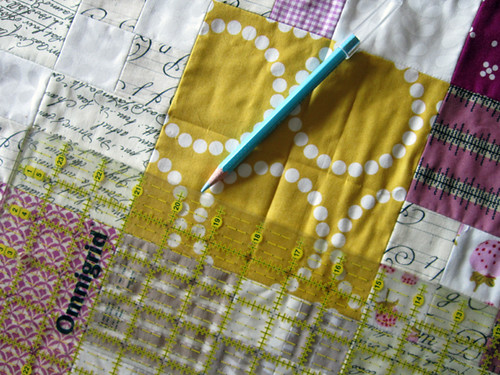
This dot is where all 4 petals of the dogwood flower will start and end. It's a great reference point as you shape each petal!
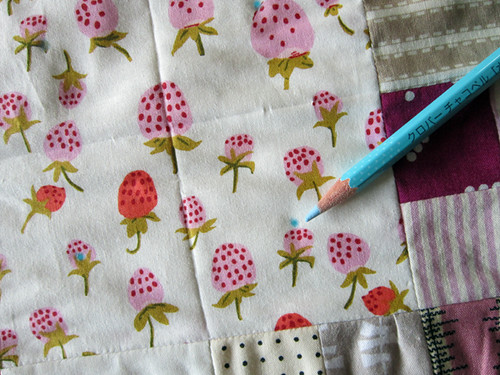
You can do all this segmenting and dot-making in advance, or just row by row as you quilt to keep it from feeling too tedious. I like to listen to an audio book during this part.
Practice!
Unless you are a fairly confident free motion quilter, I absolutely suggest you practice this pattern on a test quilt sandwich (a small piece with a top, batting and backing) just to work out those kinks! It's also a nice way to check tension on your machine before the real deal.
the Quilting
Your quilt path will be just like your practice drawing. This pattern works across the quilt in rows, so roll up your quilt leaving just one or two rows of 6" blocks exposed.
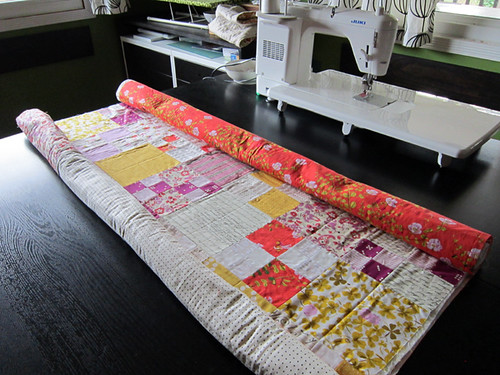
I often find I need to tighten my tension a bit (move it to a higher number) when free motion quilting. A telltale sign that you need to do so is when the stitch path looks more like a solid line than segmented stitches from the wrong side. It really helps to consult your sewing machine manual if your tension needs adjusting to make sure you're approaching the fix correctly!
To minimize frustration later on, start by winding LOTS of bobbins. I think I'll need 4-5 bobbins just to quilt the baby Penny Patch quilt.
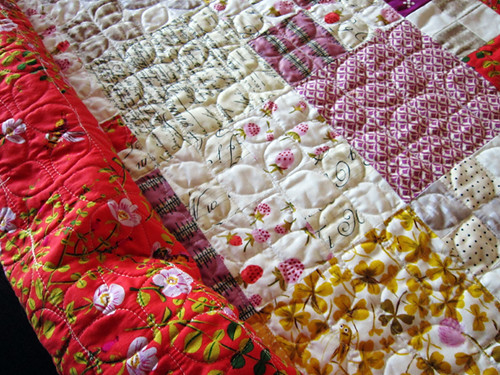
And, most importantly, live with as many "mistake" flowers as you can. REALLY! I think I so enjoy this FMQing pattern because each new flower is a chance to start fresh, an opportunity to do better. Try to put yourself in that frame of mind.
Be optimistic, keep going and you will certainly improve!
